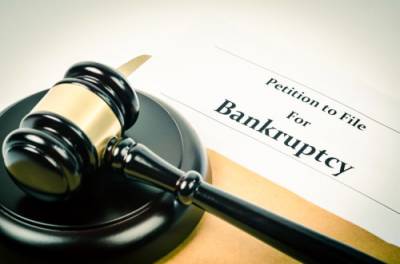Will I Lose All My Assets When Filing for Bankruptcy?
 While debt is a significant concern for many people, and bankruptcy is an option that will allow many of these debts to be eliminated, this form of debt relief is often seen as a last resort. This is often because people are concerned about losing all of their assets, including their home or car, when they file for bankruptcy. However, this is not necessarily true, and in fact, many people can complete a "no-asset" bankruptcy in which all of the assets they own will be protected by exemptions. By understanding the exemptions that apply in your situation, you can determine whether you will be able to file for bankruptcy and keep as much of your property as possible.
While debt is a significant concern for many people, and bankruptcy is an option that will allow many of these debts to be eliminated, this form of debt relief is often seen as a last resort. This is often because people are concerned about losing all of their assets, including their home or car, when they file for bankruptcy. However, this is not necessarily true, and in fact, many people can complete a "no-asset" bankruptcy in which all of the assets they own will be protected by exemptions. By understanding the exemptions that apply in your situation, you can determine whether you will be able to file for bankruptcy and keep as much of your property as possible.
Bankruptcy Exemptions in Texas
Generally, concerns about the loss of property will only apply in Chapter 7 bankruptcy cases. In this type of bankruptcy, the bankruptcy trustee will liquidate (sell) the debtor's nonexempt assets and use the proceeds to pay creditors. However, many people who file for Chapter 7 bankruptcy do not lose any property because they are able to protect all of their assets using the bankruptcy exemptions that are available in their state.
In Texas, the following exemptions apply in Chapter 7 cases:
- Homestead exemption - In most cases, Texas allows for an unlimited exemption that protects the equity a person or family owns in their home. This exemption applies for an urban home located in a municipality or subdivision, served by police and fire protection, and connected to utilities, as long as the home is on less than 10 acres of land. Rural homes may also be exempt if they are owned by a single person and situated on a parcel of land that is under 100 acres, or a family exempt a home on land of up to 200 acres.
- Personal property exemption - This protects up to $50,000 worth of property for a single person or $100,000 worth of property for a married couple or family. Applicable property may include furniture and other household items, clothing, tools and equipment used in a person's profession, a motor vehicle (including a car, truck, motorcycle, or ATV) for each member of a family who has a driver's license, two firearms, sports or exercise equipment (including bicycles), jewelry (which can be worth up to 25 percent of the total amount of exempt personal property), pets, and a limited amount of livestock or farm animals.
- Retirement plan exemptions - Generally, any type of employer-provided retirement savings plans or benefits will be exempt. These may include IRA or 401(k) accounts, pensions, deferred compensation plans, stock options, profit sharing plans, or educational savings accounts.
For those who own assets that are not exempt, Chapter 13 bankruptcy may be a preferable option, since it will not require them to turn over any assets they own. In these cases, the debtor will repay some of their debts over a three- to five-year period using their disposable income. At the end of this repayment plan, any unsecured debt that remains will be discharged.
Contact Our Dallas Bankruptcy and Debt Relief Attorneys
If you are struggling with a large amount of debt, bankruptcy may be the best option for you. However, it is important to understand how bankruptcy will affect your assets and finances. The attorneys at Acker Warren P.C. can help you determine which type of bankruptcy will best suit your needs, and we will explain which bankruptcy exemptions apply to you and the steps you can take to receive relief from your debts. Contact our Fort Worth bankruptcy lawyers at 817-752-9033 to set up a free consultation.
Sources:
https://statutes.capitol.texas.gov/Docs/PR/htm/PR.41.htm
https://statutes.capitol.texas.gov/Docs/PR/htm/PR.42.htm









